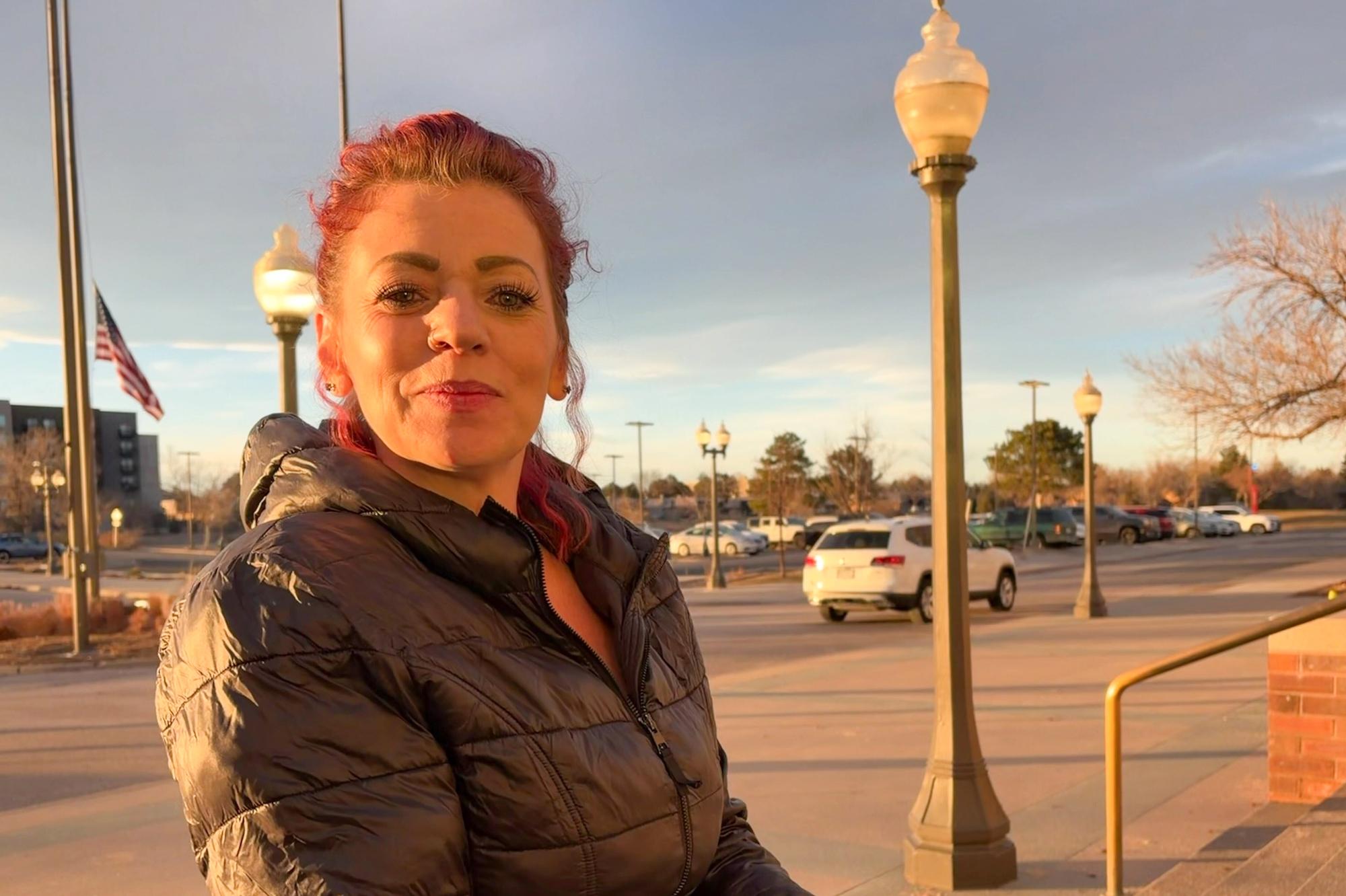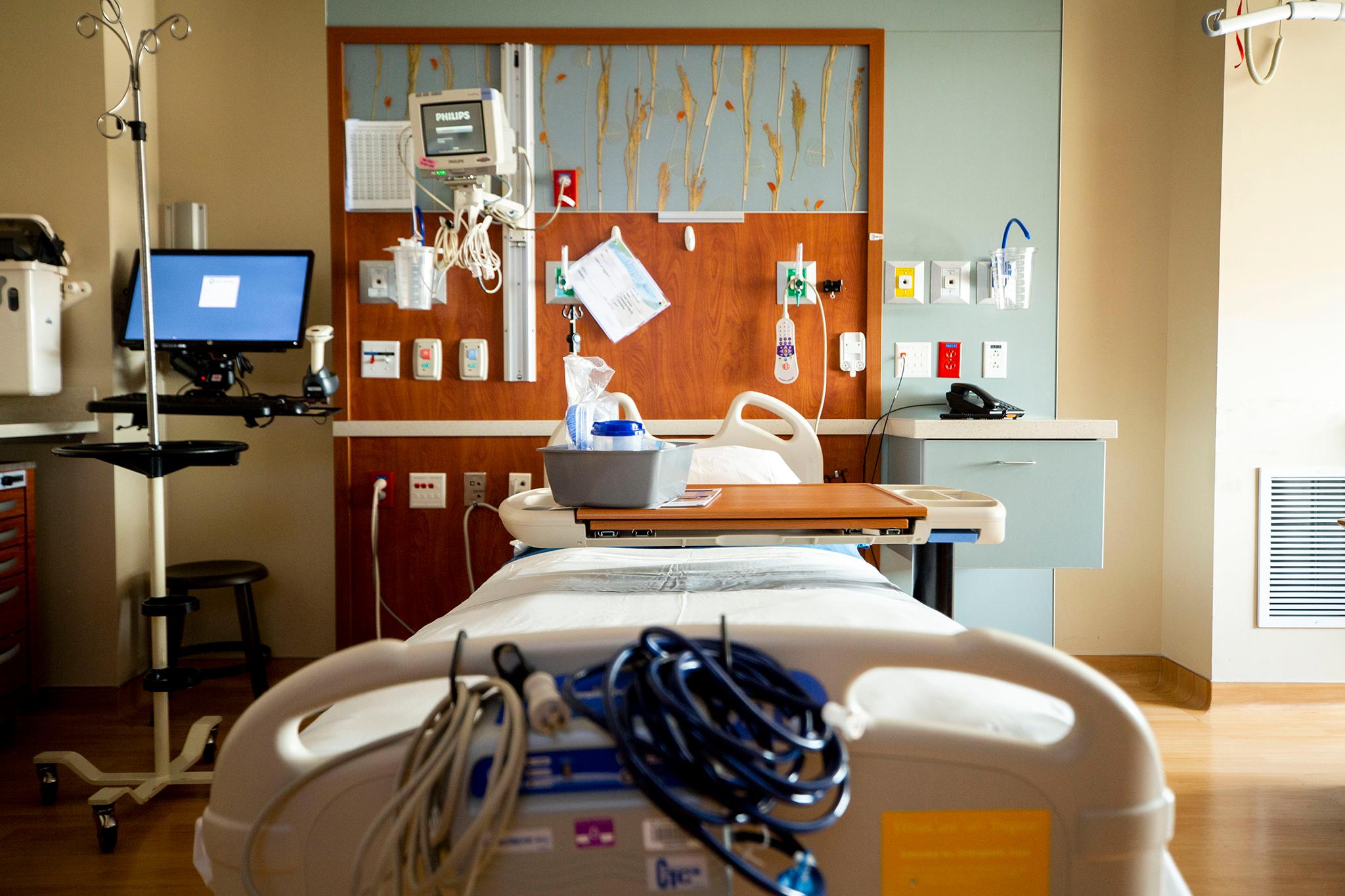
On Sunday, car after car of civic-minded residents pulled up at Empower Field at Mile High, not for a Broncos game, but to drop off things like masks, gloves and cleaning supplies to prepare for a surge in COVID-19 patients.
Colorado is at a point any sports fan can relate to: crunch time. It's not yet certain what course the state will take in its fight to stop the coronavirus outbreak. In hospital emergency rooms and intensive care units around the state, the number of patients in respiratory distress ticks up.
Meanwhile, nurses, doctors and other frontline health care workers await more protective equipment to arrive and worry about how bad things could get, and some administrators stress about their hospitals' financial stability.
“There's no way to describe it,” said Dr. Richard Zane, chair of the Department of Emergency Medicine at the University of Colorado School of Medicine. “These next two weeks are going to define how bad the next 18 months are. It's either going to be a little bad, or it's going to be a s---show.”
Zane, who also serves as the chief innovation officer at UCHealth, was emphatic in urging people to stay at home and avoid contact with others outside it.
“We're seeing a doubling of patients who are coming to the hospital that either have COVID or are highly suspicious for COVID, who are requiring inpatient services and emergency care services,” Zane said. “So if you continue to do the math, doubling every day becomes exponential. And there is clearly a surge here.”
The latest numbers from the state health department, as of Tuesday, March 24, paint a bleak picture: 11 deaths (up four from the prior day), 912 cases (up from 720 and twice the increase of the day before) and 84 hospitalized in 35 counties, with seven outbreaks at residential and non-hospital health care facilities.
Some areas of the state, including some mountain counties, have become hotspots, where rates of COVID-19 are far higher than elsewhere in the state.
Zane said the timing of everyone’s response is critical to flatten the curve and slow the spread of the disease.
“These next one to three weeks are going to be incredibly important.”
His take is echoed by frontline hospital workers.
“We are starting to ration PPE (personal protective equipment, like masks) as we anticipate that we will run out,” said Dr. Don Stader, an emergency medicine doctor at Swedish Medical Center in Englewood.
He said the hospital is seeing an “escalation” in COVID-19 patients, but notes testing is hard to obtain.
“We are all scared that this is the calm before the storm," Stader said.
The effects on staff are already starting to show.
“We have several providers being ruled out for the virus and shifts that have needed to be covered as a result. It is a stark reminder that many of us, as we fulfill our calling, will fall ill as well," he said.
Stader is also worried about supplies of ventilators, a key piece of medical machinery that mechanically assists a patient in breathing.
“We are good for now, but the projections by the state estimate that we will be overwhelmed by mid to late April (due to the expected spike in COVID-19 patients)," Stader said.
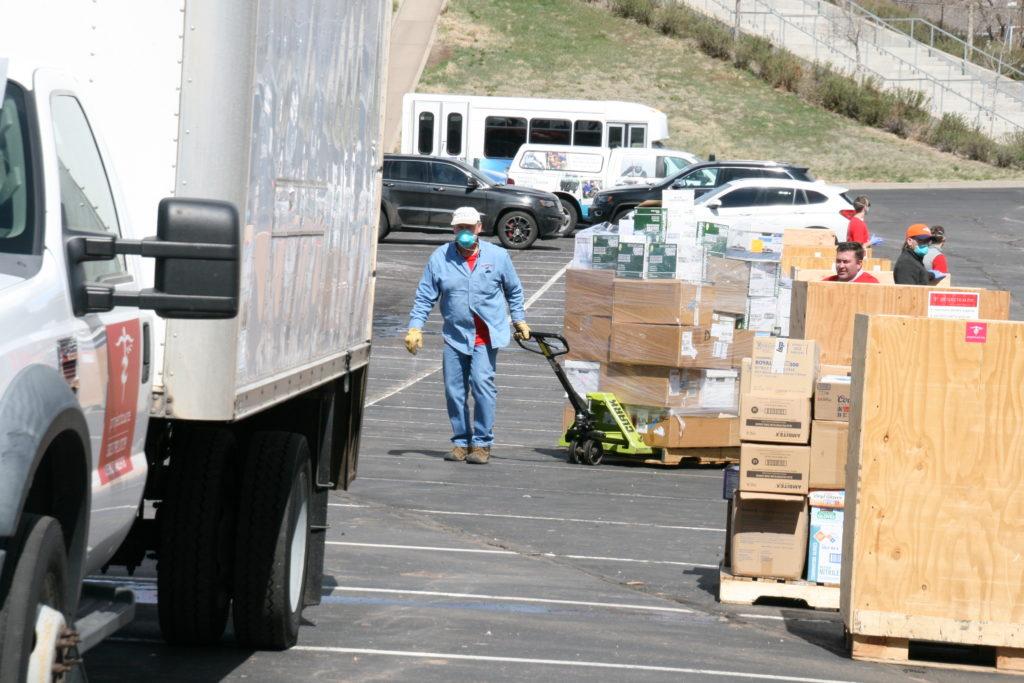
Lisa, a bedside registered nurse who works for one of the Centura Denver-metro hospitals, said confirmed or suspected COVID patients were being grouped together.
“This helps us to conserve PPE,” said Lisa, who answered questions via a spokesperson via email. Lisa didn’t want to use her last name and was reluctant even to be pulled from her duties.
“We are doing all we can to conserve PPE,” Lisa said. “That keeps us prepared for a surge and still be able to protect all our health care workers.”
Swedish, part of the HealthOne system, has an incident command center that is monitoring and preparing for a surge, she said.
A big push is now on both locally and nationally to get more masks manufactured, shipped and delivered to Colorado as soon as possible. On Monday, the state’s emergency operations center and its health department began shipping supplies from the Strategic National Stockpile, which has a warehouse in Mesa County.
The state got roughly 50,000 N95 masks, 115,000 surgical masks, 21,000 surgical gowns, 22,000 face shields and 84 coveralls.
But it’s still a race against the surging number of virus cases, as the lack of protective gear potentially endangers the workers needed to care for sick patients.
“The shortages of PPE are really frightening. Providers are willing and ready to go to work and help patients — this is what we signed up for and dedicated our careers for,” said Dr. Emmy Betz, an emergency room physician at University of Colorado School of Medicine.
Her concerns were not specific to her hospital, UCHealth, but broader. She said UCHealth is starting to see more people who are very sick, presumably with COVID-19.
“It's sad to think that, in the U.S. in 2020, we might be endangering our families and other patients because we don't have the supplies we need,” she said by email.
Providers are anxious for what’s coming and what it means for their own families, Betz said. Many were discussing whether to self-isolate from families and avoid cuddling their kids.
Betz worries about techs, environmental services workers and others in hospitals, “many of whom don’t make huge salaries and work very long hours.”
Zane said at UCHealth, limited PPE could mean limited treatment for patients.
“Under no circumstances are we going to put a healthcare provider in a position where they have to do something dangerous, period,” he said. “We're going to do everything possible to protect them, including not putting them in positions where they're not protected. So having enough healthcare providers is paramount.”
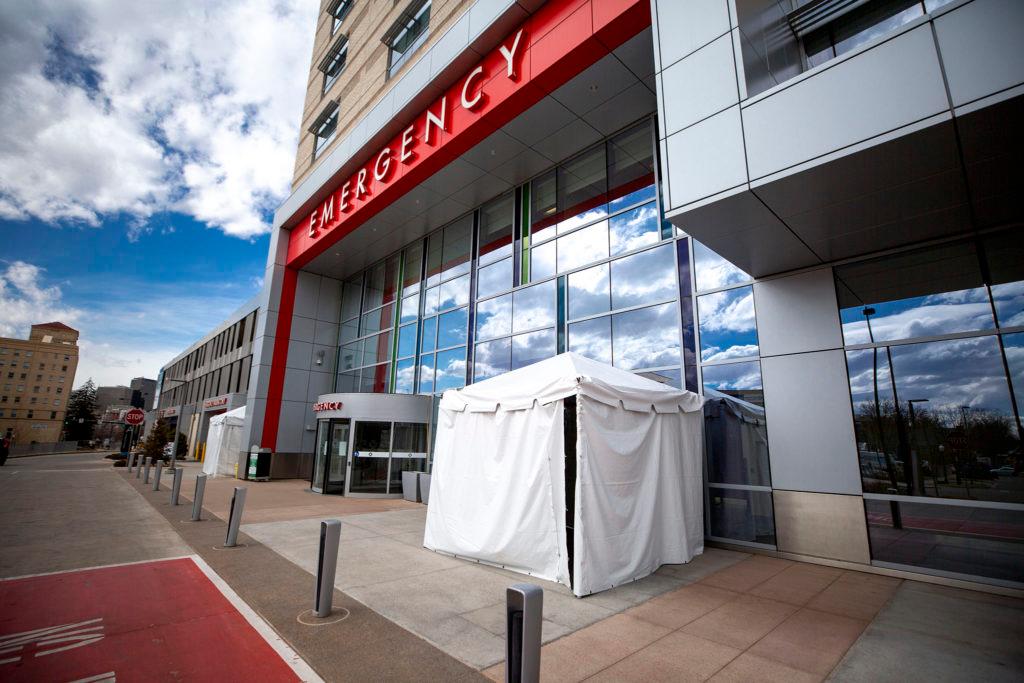
The state’s first coronavirus case was recorded in Summit County.
The patient was from California and had skied at Vail and Keystone.
Fast forward a few weeks, and the situation in some mountain communities, like Eagle County where Vail is located, has grown increasingly urgent. Eagle County had the highest rate per capita in the state with 168 cases per 100,000 people. That figure is eight times Denver’s rate. Gunnison and Pitkin counties also have high rates of the virus.
“We need to take this seriously, NOW,” Will Cook, the president and CEO of Vail Health, wrote last week in a letter to patients and community members. “The real number of local cases in the Eagle River Valley is more likely hundreds if not thousands of people. It is everywhere here.”
He said the hospital didn’t have test results to prove it, and “we won’t anytime soon.”
Based on countries like Italy and Spain “this disease spreads exponentially,” Cook said.
“That means it starts slow and then explodes and overwhelms hospitals and the health care system," he said.
That pattern means health care providers struggle to care for the sick and dying.
Cook said without disciplined social distancing, “our 56-bed Vail Health Hospital will be overflowing within 2-4 weeks. We will not have enough respirators to keep people alive, and locals of all ages will be dying.”
In a sign of the danger, a pair of prominent Vail citizens caught the virus. Popular musician Rod Powell died last Saturday from complications from COVID-19, the county’s first death. The town’s mayor, Dave Chapin, disclosed Friday that he too had tested positive for coronavirus. Several foreign visitors skied at Vail and later tested positive for the virus. At least 14 wealthy residents of Mexico, including some prominent business leaders, came home infected with the coronavirus.
In a statement, Chapin echoed Vail Health’s Cook in urging social distancing.
“Please heed the warnings of our local public health experts, as it will free up critical resources for those who need it most and will ultimately save lives,” he said.
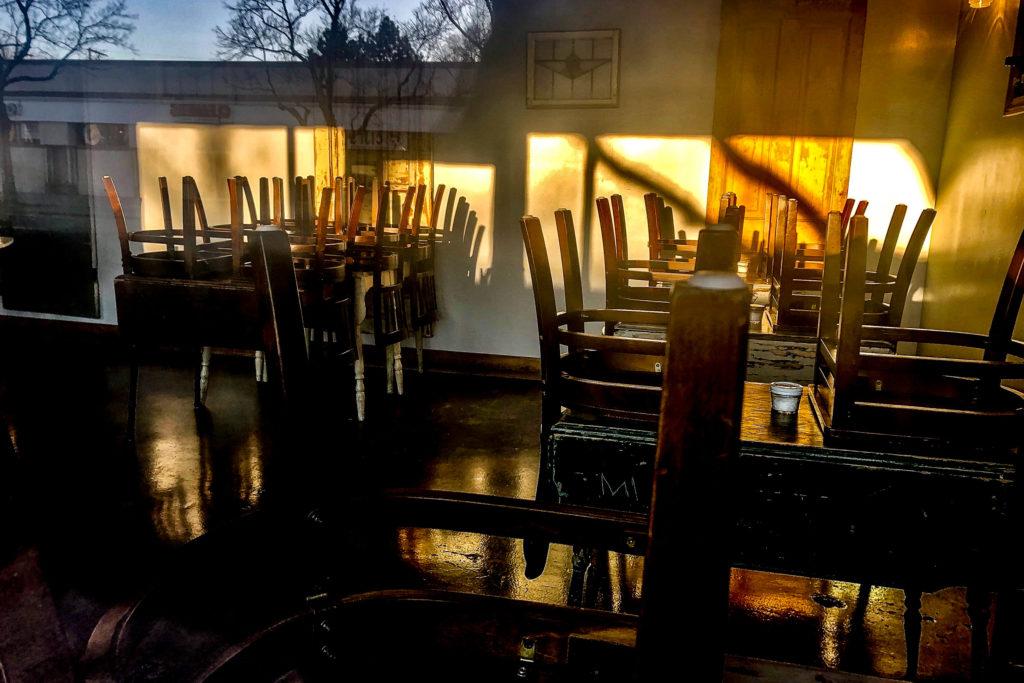
Hospitals have been racing to prepare for a sharp upswing in COVID-19 patients.
They’re looking within their own walls for more space for patients.
“We're looking within the walls of the hospitals to say, ‘Are there places that we can stand up essentially patient rooms or patient beds where there aren't any today?’” said Julie Lonborg, a spokesperson for the Colorado Hospital Association. She said it could be a section of the hospital that had been closed or a unit for outpatient care. “But if it has the proper connections and gases and things like that, and we've got the equipment, we can open more beds.”
Another key element of the planning: how to manage moving patients out of the most intensive care, a process called “throughput” that involves discharging or transferring patients who are recovering.
The CHA has a plan to transfer patients who test negative for COVID-19 from urban hospitals to rural hospitals, long-term acute care hospitals, ambulatory surgery centers, even hotel rooms if need be.
Hospitals in Colorado have been studying their counterparts in Europe as well as the Seattle area, site of the first outbreak in the U.S. In a call hosted by the American Hospital Association, health leaders in Colorado heard lessons learned from Washington state’s association.
The discussion included the implementation of what are called “crisis standards of care,” which Washington hospitals anticipate possibly following. Lonborg described it as medical providers having to make tough, life-or-death decisions: “When the system is overwhelmed and the demand for care so far exceeds the supply in our ability to care for patients that we have to make difficult decisions about who to care for and what level of care to provide.”
That includes questions of what doctors and hospital staff do when they have, say, 10 patients in serious respiratory distress, but only five ventilators? Lonborg described the discussion as “sobering” and “bone chilling.”
But she hoped the insights learned from Washington would save lives.
“It’s invaluable,” she said.
Still, the pressure on the hospital system promises to be intense, depending on how large the coronavirus wave becomes in Colorado. An analysis published by ProPublica described a "moderate" scenario in which 40 percent of the adult population contracts the disease over 12 months. The analysis found that the Denver region would need to expand capacity as intensive care units would be especially overwhelmed.
It found without the new wave of patients, there are only 330 available beds on average in intensive care units. That’s much less than what is needed to care for all severe cases in a moderate scenario.
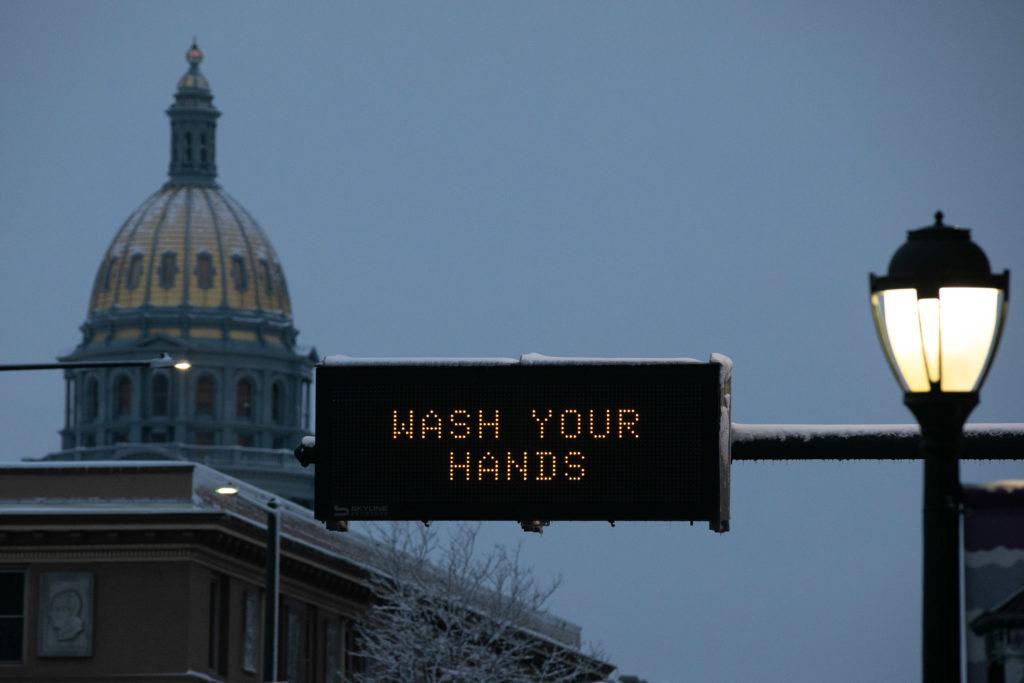
The coronavirus crisis could destabilize some hospitals, just as more care is needed.
Hospitals are raising concerns about their finances with the storm of new cases brewing. Last week, Colorado Hospital Association president Chris Tholen sent a letter to the state’s Congressional delegation warning of “hospitals' financial viability.”
As Congress works on a third COVID-19 response bill, Tholen urged direct emergency funding for the state’s most vulnerable hospitals. He said they need an immediate infusion of $250 million to cover temporary loss of revenue.
Tholen noted that elective procedures, which have been put on hold across the state and the country, represent up to nearly half of total operating margin at rural and urban safety-net hospitals. At least 40 percent of reporting vulnerable hospitals in Colorado “have less than 50 days of cash on-hand,” he said.
Without revenue from elective procedures over a three or four-month period, “many vulnerable hospitals will close, jobs will be lost and access to care will be compromised.”
He said Colorado’s hospitals were partnering with local seamstresses to “transform droplet protective fabric from pillowcases into thousands of facemasks.” Ten rural hospitals have been collaborating for more than a year to share nurses. But he said hospitals can’t “confront this pandemic alone.”
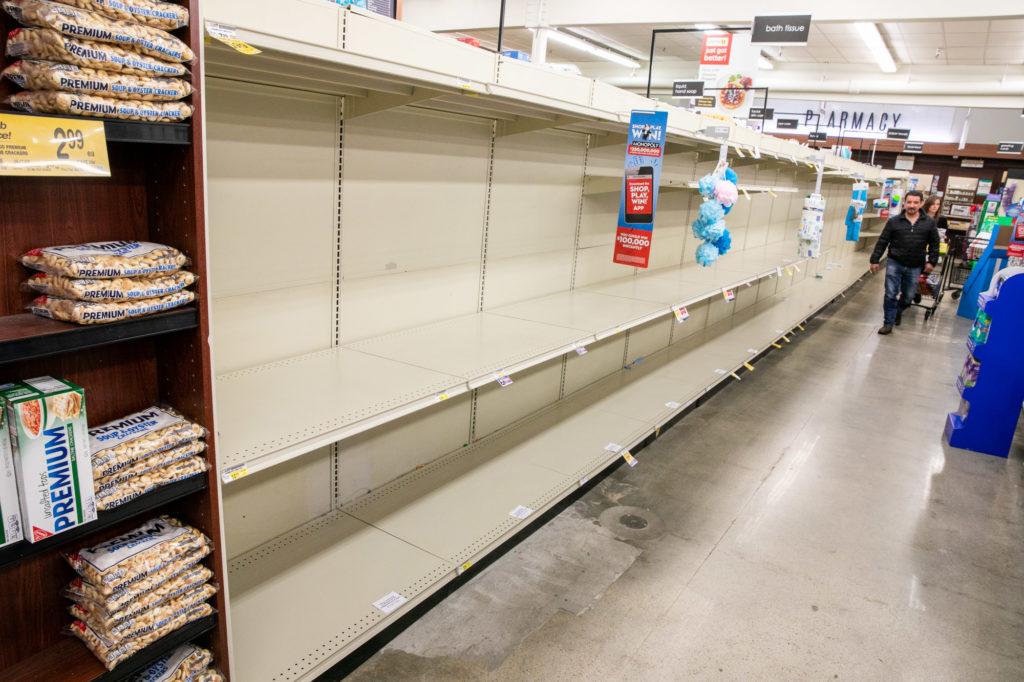
As all of Colorado pivots to confront the new coronavirus, efforts to mitigate it seem to be sinking in.
But UCHealth’s Zane said the initially slow response and the perception that the virus wasn’t terribly dangerous means there are a lot of cases already circulating in Colorado and the U.S.
He worries about how many people can get infected when tough decisions by public officials, like limiting large gatherings, come too slow.
“You saw the pictures of Clearwater Beach (in Florida) as did everybody else. That right there is a death sentence for someone,” Zane said.
In Denver, he pointed to the decision to go ahead with a Post Malone concert at a crowded Pepsi Center earlier this month, after pro sports leagues had halted games.
“Those are going to have very real consequences for actual humans who will live or die because someone didn't do the right thing,” Zane said.
The actions of communities and individuals the next few weeks will help determine whether the number of cases each day bends down, he said.
“So the reality is, stay at home, practice social distancing and you may dodge a bullet,” he said.
In the midst of the rapidly escalating situation, the community response has offered hope. At Empower Field at Mile High, where sports fans have cheered their heroes for years, residential real estate agent Dick Boden donated about 10 boxes of masks in hopes they might prove valuable for medical workers.
“I've been following the news carefully about this. And I've seen the situation at its worst in Italy. And health professionals and doctors are becoming sick at a pretty rapid and scary pace,” Boden said.
He said he was happy “just to help out and hopefully do what I can” to protect health workers and hospital conditions.
For nurses, those moments of solidarity have been a bright spot in a dark time.
“I think it is pretty amazing!” said Lisa, the bedside nurse at a Denver-area hospital. “It shows our community is coming together to care for each other.”

